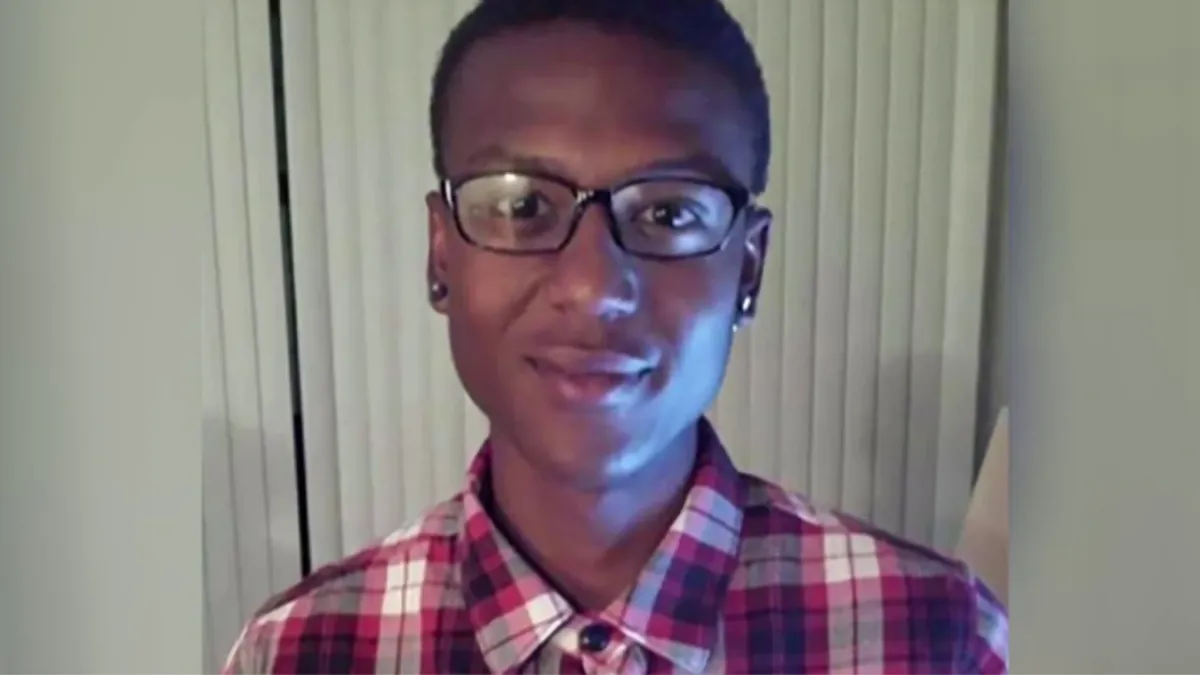On Monday, a Colorado jury acquitted Aurora police officer Nathan Woodyard in the death of Elijah McClain. McClain, a 23-year-old Black man, died in 2019 after being placed in a chokehold and administered a potent sedative.
Weeks after a second officer, Randy Roedema, was found guilty of criminally negligent homicide and third-degree assault, the verdict was finally delivered.
In the case of McClain’s death, Jason Rosenblatt, a former Aurora officer, was acquitted of reckless manslaughter, criminally negligent homicide, and assault charges.
After the verdict was announced, Aurora Police Chief Art Acevedo released a statement acknowledging that many individuals had been eagerly anticipating the outcome on Monday.
He stated that it is crucial for our country to uphold the rule of law. The American judicial process is highly esteemed, and we must honor it. The decision made by the jury is respected, and we express our gratitude to them for their diligent service and careful consideration.
Upon hearing the verdict, Attorney General Phil Weiser acknowledged the challenges in prosecuting those responsible for the death of Elijah McClain. However, he expressed his respect for the outcome and promised to pursue justice and accountability for McClain and his family.
Weiser expressed his thoughts on Sheneen McClain, who has been fighting tirelessly to preserve her son’s legacy. He firmly believes that no mother should ever have to experience the pain and suffering that she has gone through.
The justice system has lost all credibility in the eyes of Sheneen McClain.
After court, she expressed her anguish, saying, “Killer cops and their accomplices are responsible for my son’s murder. The justice system permits them to continue with their crimes.”
When McClain was walking home from a convenience store in Aurora, Officer Woodyard was the first to approach him. This happened after a 17-year-old called 911, reporting McClain as suspicious because he was wearing a mask, listening to music, and dancing while walking.
According to prosecutors, Woodyard approached McClain without introducing himself or providing an explanation for why he wanted to speak with him. Within just eight seconds of exiting his patrol car, Woodyard grabbed McClain, who appeared to be taken aback by the sudden physical contact, and attempted to continue walking.
Jurors were repeatedly informed by Colorado Assistant Attorney General Jason Slothouber that Woodyard made the conscious decision to escalate the situation, disregarding McClain’s words and the police department’s de-escalation policy.
According to Slothouber, Elijah McClain was simply walking home while dancing when he was approached by the defendant. McClain had told the defendant that he was stopping the music to listen, but there was no need for the situation to escalate into violence.
According to reports, McClain was put in a neck hold by Woodyard, which caused him to lose consciousness for a brief period. Woodyard claimed that he believed McClain had attempted to grab one of the officer’s guns, but prosecutors have disputed this assertion. Tragically, paramedics later administered a fatal overdose of ketamine to McClain.
Throughout the weeks-long trial, the defendant’s lawyers emphasized that the officer stepped away from the nighttime confrontation after being called away by his supervisor. They argued that he was not present with McClain as his condition deteriorated and other officers continued to subdue him. Defense attorney Andrew Ho asserted that Woodyard relied on his fellow officer and the paramedics who administered the ketamine to take care of McClain.
Ho emphasized the need to eliminate in-custody deaths, citing the prevalence of violence and the positive impact that would result from their cessation. However, Ho clarified that despite these important points, Nathan Woodyard should not be held responsible for the death of Elijah McClain. Instead, Ho argued that it was the administration of ketamine that ultimately led to McClain’s tragic end.
Also Read:
- Mother taken into custody following the disturbing finding of a newborn girl
- Police have taken 1 person into custody after a stabbing in a home in southeast Colorado Springs
- Bedford-Stuy Shooting Results in 4 Injuries and 3 Suspects in Custody



